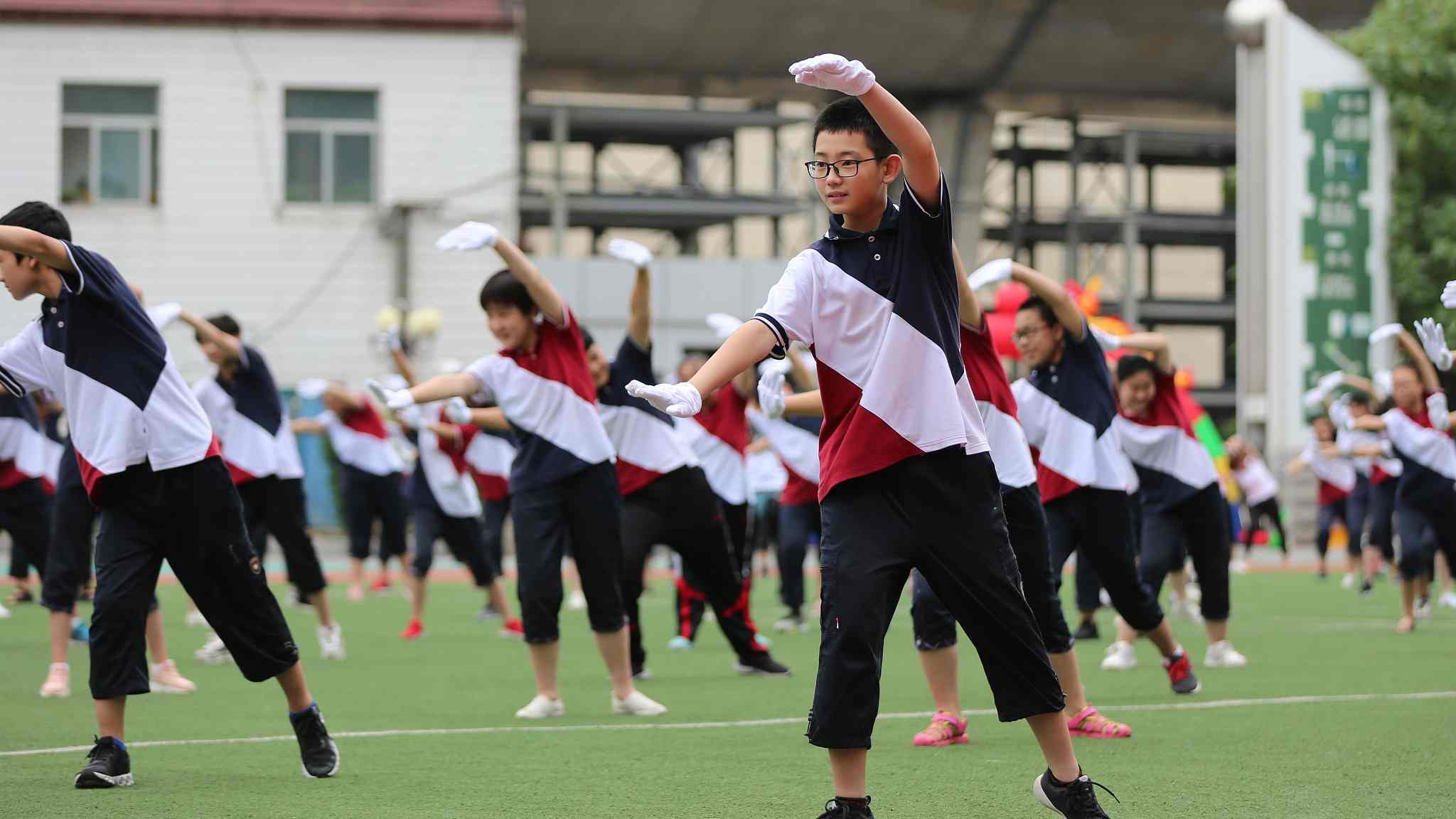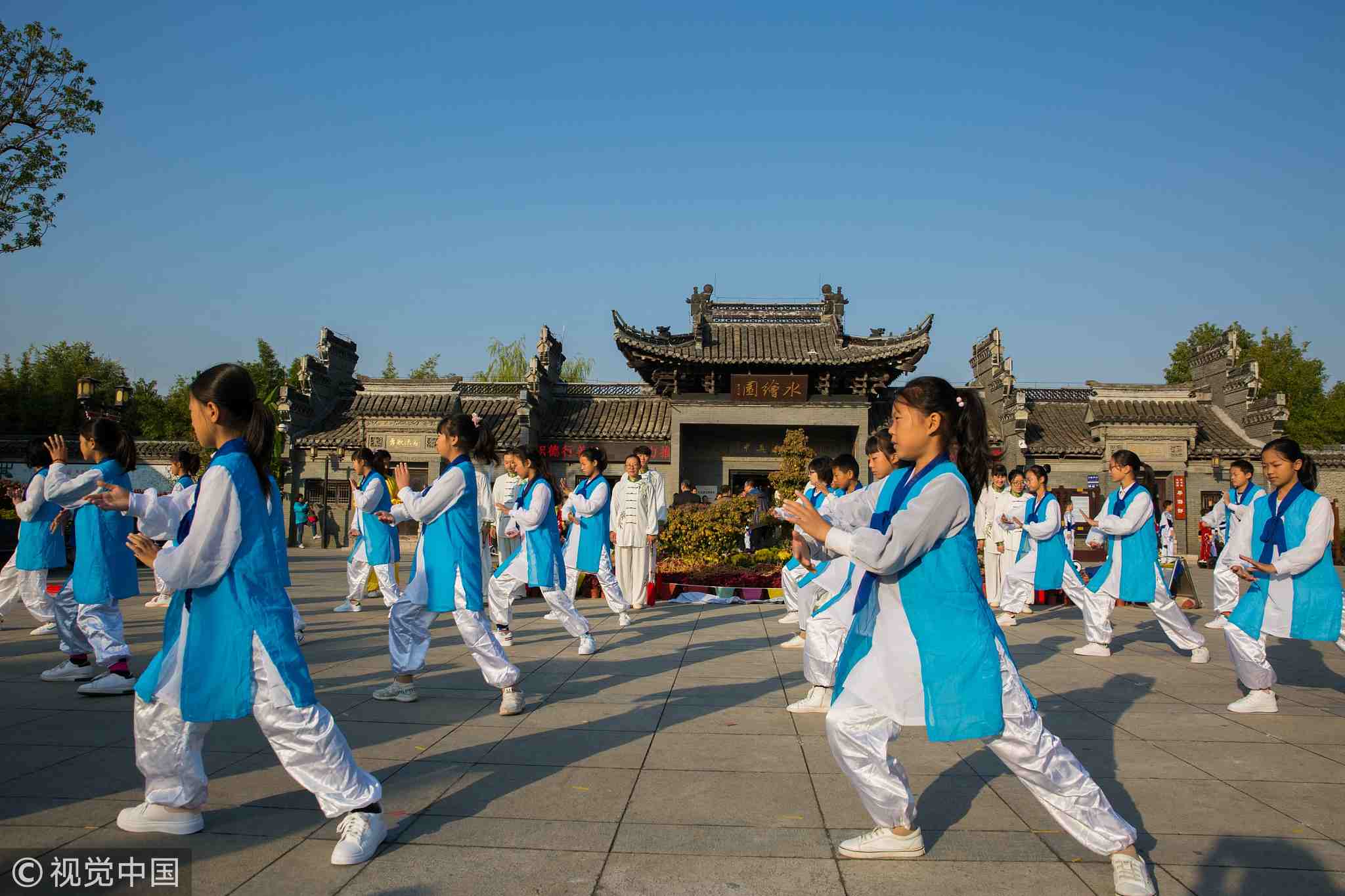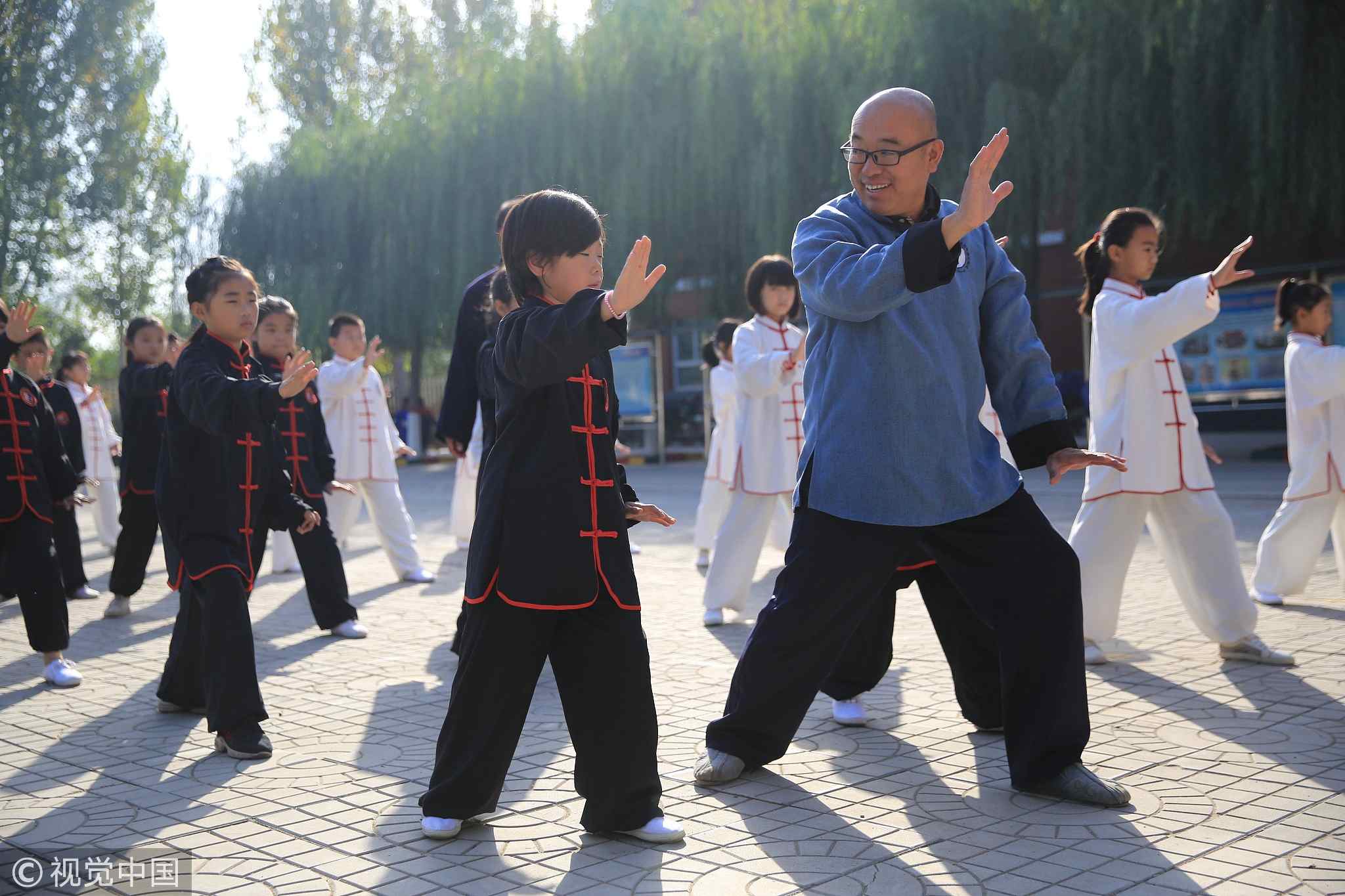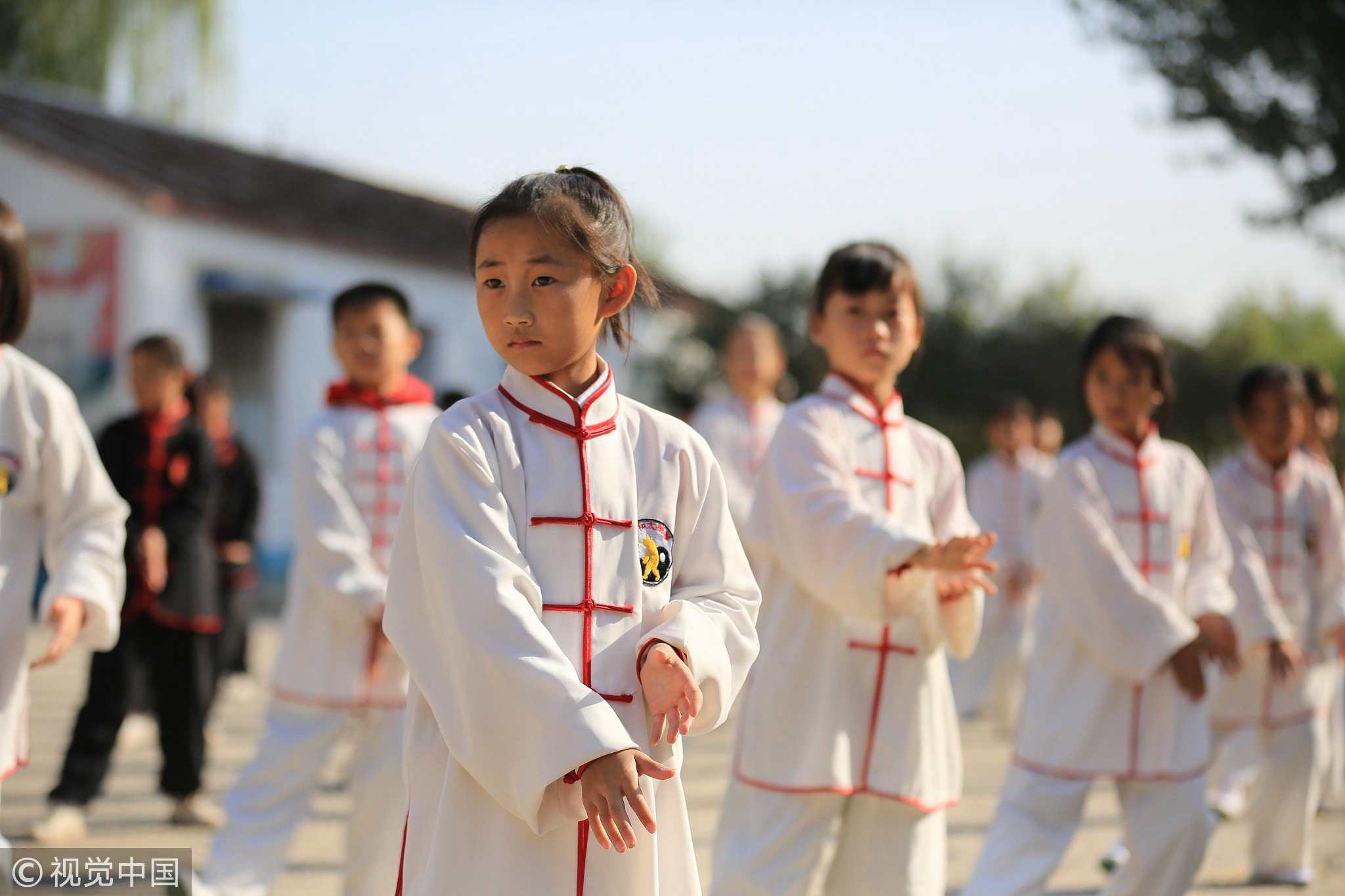
China
18:26, 30-Oct-2018
Chinese students required to master Tai Chi to graduate high school
Updated
17:36, 02-Nov-2018
CGTN

Mastery of 24 basic Tai Chi moves is now required for students to graduate from high school in east China's Fujian Province, according to the latest statement from the province's education administration, triggering heated debate.
Tai Chi is listed as a mandatory sport in the high school physical education test, which makes up around 10 percent of the total grade, said the Fujian education department, reported Xinhua News Agency.

Primary school students in Nantong City, east China's Jiangsu Province perform Tai Chi in a local park. /VCG Photo
Primary school students in Nantong City, east China's Jiangsu Province perform Tai Chi in a local park. /VCG Photo
As one of the many branches of Chinese Wushu, the broad term applied to the country's various forms of martial arts, Tai Chi is known for its slow moves that are part of defense training. It's also practiced for its health benefits. Accompanied by regulated deep breathing, it allows the body to achieve a state of relaxation and harmony.
While supporters welcome the change as a way to promote traditional Chinese martial arts and help junior students to relieve academic pressure, others think Tai Chi is too mild a physical activity for active teenagers.
Schools in other Chinese cities and provinces have also tried to promote traditional Chinese martial arts and incorporated courses including Tai Chi and Kung Fu as parts of their compulsory curriculum.

Teacher show how to do Tai Chi for primary school students in Xingtai City, north China's Hebei Province. /VCG Photo
Teacher show how to do Tai Chi for primary school students in Xingtai City, north China's Hebei Province. /VCG Photo
However, interest in the martial art remains a challenge. Guo Yuzhao, head of Yidao Tai Chi School in Fujian Province, said that many local schools refused their offers to run the Tai Chi class for free.
Most of the young people nowadays lack the interest to learn traditional martial arts, said Chu Zhaohui, researcher from Chinese Education Science Research Institute. If schools forcibly incorporate martial arts as parts of the compulsory curriculum, it is likely to trigger students' reverse psychology and will do little help for the inheritance of the culture, he added.

Primary school students in Xingtai City, north China's Hebei Province, learn how to perform Tai Chi under the guidance of teacher. /VCG Photo
Primary school students in Xingtai City, north China's Hebei Province, learn how to perform Tai Chi under the guidance of teacher. /VCG Photo
Guo suggested the government, society and school should work together to improve the popularity of the traditional Chinese martial arts on the campus.
The country's authority should establish regulations to promote the education of martial arts; the school is responsible for gathering talents to explore and improve the teaching of martial arts on the campus; the whole society should encourage more martial arts agencies to enter the communities and attract more parents to bring their kids to learn martial arts, said Guo.

SITEMAP
Copyright © 2018 CGTN. Beijing ICP prepared NO.16065310-3
Copyright © 2018 CGTN. Beijing ICP prepared NO.16065310-3